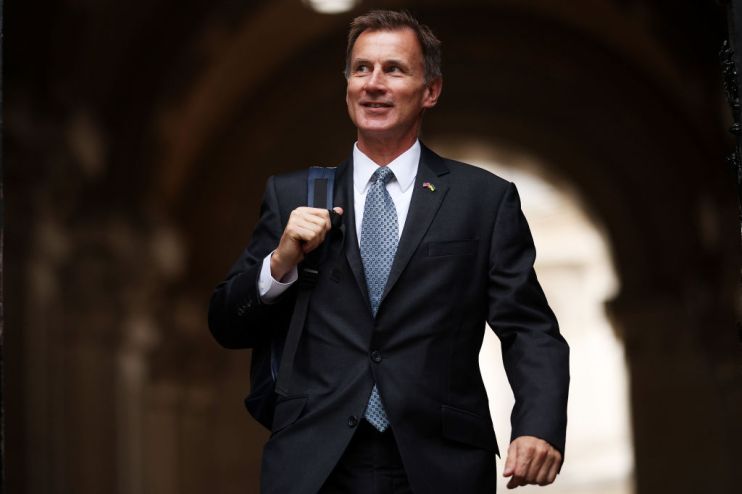Appease the markets and his own party? Jeremy Hunt has a frightful task

Tomorrow, Jeremy Hunt needs to deliver a plan that both wins the confidence of the city – and the financial markets – and is politically palatable.
This comes off the back of a narrative which has converged around terms like “black holes” and “difficult decisions”. The emerging theme is that there is a gap in the public finances of over £50bn that government is looking to fill using a mix of tax rises and spending cuts. As he has repeatedly said, everything must be paid for somehow.
Rishi Sunak is a prime minister who favours a return to the principles of the 2019 Conservative manifesto, which promised no increases in the rates of income tax, national insurance, or VAT. These are the three major workhorses of the UK tax system, contributing approximately two-thirds of the total tax take. With these off the table, any other tax rises will have to work so much harder.
The chancellor needs to deliver tax rises that pluck the goose to the max without ruffling too many feathers. The tax rises also need to feel “fair” to the voting public but not alienate the Conservative core voting base. A frightening task, in the best of times.
In terms of corporate tax, it will likely be a quiet statement for most businesses with no give-aways. However, there is always an exception to the rule and the most likely exception will be, of course, the energy sector. Despite initial hesitance earlier this year, it is likely there will be an extension to the windfall tax on energy companies. Another avenue is the banking surcharge, with a reduction of as much as 3 per cent on the cards.
But the most significant tax announcements will fall on personal taxes, with plans to have those with “the broadest shoulders bearing the greatest burden”, a George Osborne quote oft cited by both Jeremy Hunt and Rishi Sunak.
When it comes to income tax expect thresholds to be frozen for another two years. In a bid to keep the manifesto pledge to keep income tax down, the chancellor is more likely to drop thresholds. A kind of magic trick which will keep rates at the same, but bring more cash into the Treasury. The 1p basic tax rate reduction will remain a blip on the horizon.
There might also be an increase of 1.25 per cent to employer’s national insurance and we think this is possible. If it is introduced as a new levy (such as the Health and Social Care Levy) rather than an increase in national insurance it arguably does not breach the manifesto commitment to freeze the rate.
There is a strong likelihood an increase in the rate of the capital gains tax will be in the firing line. This will likely either be bringing the capital gains rate up to income tax rates but introducing indexation relief, or increasing the capital gains rate more modestly but without indexation relief.
Without substantial changes to income tax, one of the other levers the chancellor is likely to pull is significant structural changes to dividend tax, with an increase of 1.25 per cent. The tax-free dividend allowance – currently £2,000 – is being considered.
Politically the government will be under pressure to review the non-dom regime but it is more likely we will see a consultation before any radical changes are made.
The nil rate band for inheritance tax purposes, which currently stands at £325,000, has already been frozen until April 2026 and it would seem fairly easy for the chancellor to freeze it for a further two years.
Although Rishi Sunak did end up going to Cop27 in Egypt, we have yet to see any clear policy on how tax will help achieve net zero. Businesses want to see more incentives for green investment to encourage private sector innovation. Anything radical will likely gather dust until the prime minister has steadied the ship.
Business rates reform has been on the government’s agenda for several years but keeps getting kicked into the long grass, a place it will likely stay until the economy is stabilised.
Overall, the need to tackle the immediate issues in the public finances means that it is still early to judge what a Sunak/Hunt partnership might mean for tax policy longer term. This Autumn Statement is going to be about battening down the hatches and preparing for the stormy waters ahead.